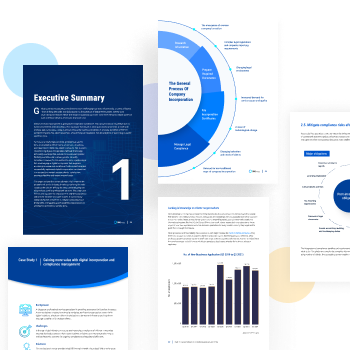
The COVID-19 pandemic has made a massive impact on the legal industry. Due to negative economic outlooks all around the world, many top clients for law firms are looking for ways to cut their legal costs in order to improve efficiency and profitability.
As a result, the market is becoming more competitive than ever, and law firms have arrived at a point of inflection. Most law firms find themselves struggling to deal with traditional expectations of the legal services while satisfying new expectations from more sophisticated clients. To stay competitive in an ever-changing world, law firms need to stop reacting passively to clients’ demands and deliver unique, innovative services.
Unfortunately, firms in legal industries are reluctant to change and tend to do just what clients throw at them. In this article, we take a closer look at why this reactive approach is no longer relevant for law firms and why they need to go beyond what is asked of them.
Why it is no longer enough to simply meet client’s demands
Let’s say your firm is serving a client from the United States, and they want to expand their E-commerce business to Hong Kong. Your firm will be required to do a few things: setting up a subsidiary, checking with the local regulations of Hong Kong, and seeking consultations on matters regarding taxes. These requests are simple and straightforward, with law firms only needing to do a bit of research on Hong Kong’s law.
However, on the very next day, another client calls, planning to expand their business in Singapore next month. That means there is another “little bit” of research that your firm must do to meet this specific client’s request as well. These little tasks and requests add up over time, pushing firms to a point of diminishing returns; higher performance output for the same amount of requirements.
In other words, law firms are currently mostly reactive to clients’ demands, yet they rarely predict what to do next. As a result, they often get caught unprepared when a client calls with a request for a country in which they have neither the experience nor the resources. Simply trying to catch up with your client’s demands means you will never be able to go beyond their expectations. If all your firm can deliver is what is expected, you will not stand out in this rapidly shifting industry, not delivering anything.
There is a need to shift away from simple client demands
Each client your firm works with does not have to be just another client. In fact, it is possible to turn your past clients’ needs and requests into positive changes within your firm, and, in turn, incorporate them as experience for future opportunities with new clients.
For instance, you can demonstrate to potential clients that your firm does not simply listen to clients and meet their demands, but also be able to adapt to different situations, turning them into opportunities to improve how you deliver your services, bringing them more value in the long run. That is the advantage that you can expect when shifting your focus away from only reacting to the demands thrown at you by clients, and towards creating unique approaches, strategies, and values as a law firm.
According to Wolters Kluwer’s report, more than half (53%) of law firms in the US and Europe stated that they are building up investments in technology over the next three years. The growing impact of technology on legal work procedures has been one of the most apparent changes in the professional service industry. Undoubtedly, technology-driven changes are coming at a faster pace and having more drastic effects in recent years. What law firms can do is look into these new trends that will wow their potential clients, such as digital incorporation.
Digital incorporation benefits consulting services in various ways, allowing for better efficiency, great transparency, and cutting down costs from outdated traditional methods, shifting your firm into a future-proof workflow with instant access to information and better security. A change to the systems, processes, workflow, and culture can be what it takes to elevate your law firm above and beyond on the market, and digital incorporation is among the most relevant aspects of professional services in this day and age.
White paper
Entity Formation On A New Horizon
Learn how professional services are exploring digital avenues for entity establishment.

Conclusion
In summary, the big idea is that firms need to stop being reactive and start being responsive instead. Of course, it is always necessary to deliver the service your clients require. However, there are always opportunities to look further than what the clients ask of your firm. It is time you find out your own unique values, work on your own term, and give clients a taste of something more than just what was on the negotiation table.
These unique values will make you stand out among competitors and show your clients that you are more valuable to them than just a short-term collaboration. Moreover, it will also make your lawyers feel like they matter as individuals and, in turn, can elevate you to the top of this shifting market.
Disclaimer: While BBCIncorp strives to make the information on this website as timely and accurate as possible, the information itself is for reference purposes only. You should not substitute the information provided in this article for competent legal advice. Feel free to contact BBCIncorp’s customer services for advice on your specific cases.
Industry News & Insights
Get helpful tips and info from our newsletter!
Stay in the know and be empowered with our strategic how-tos, resources, and guidelines.


